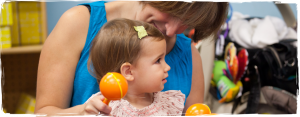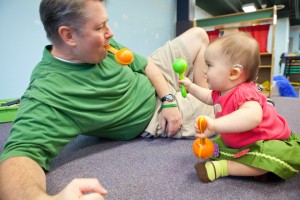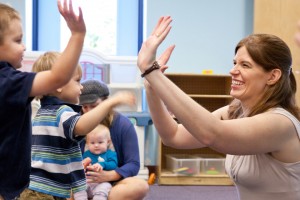Washing dishes? Cooking dinner? How do you get all this done while staying connected to you children? One way is through singing. Here is a brand new Sprouting Melodies Sing at Home to help you and your child stay together with the beat, even while you are not missing out on any other beat!
Together with the Beat
Hey, I’m so glad you’re here
We’re going to clap and cheer
We’re going to stamp our feet together to the beat
We’re going to sing and play
We’re going to shout ‘hooray’
We’re going to stop and say – “Have a Really Great Day!”





